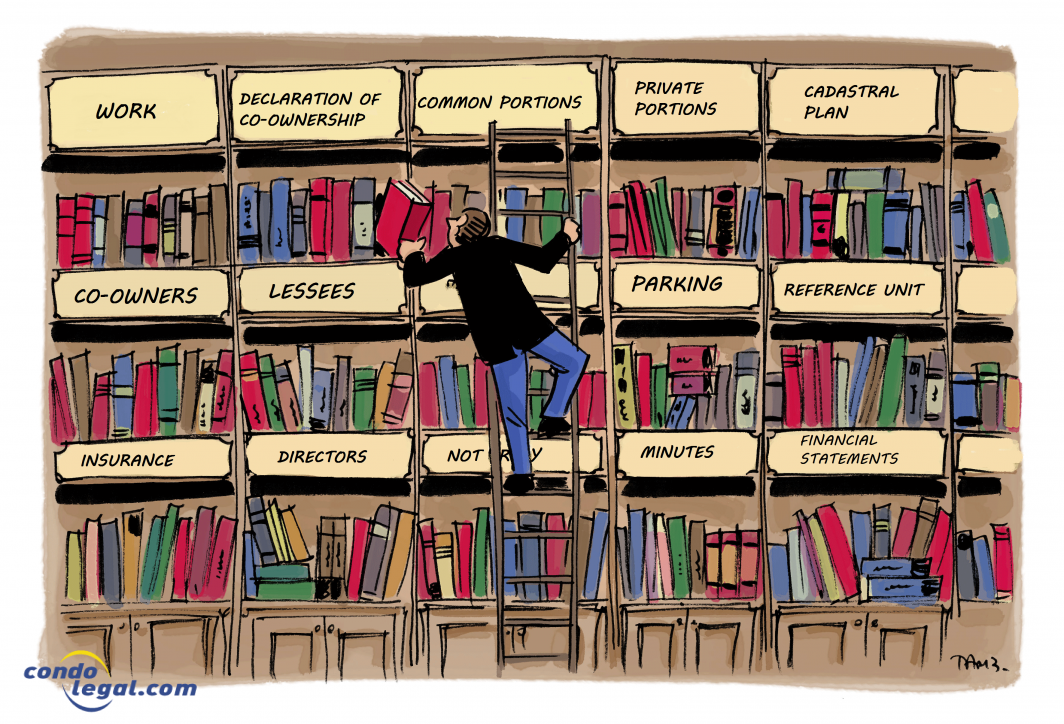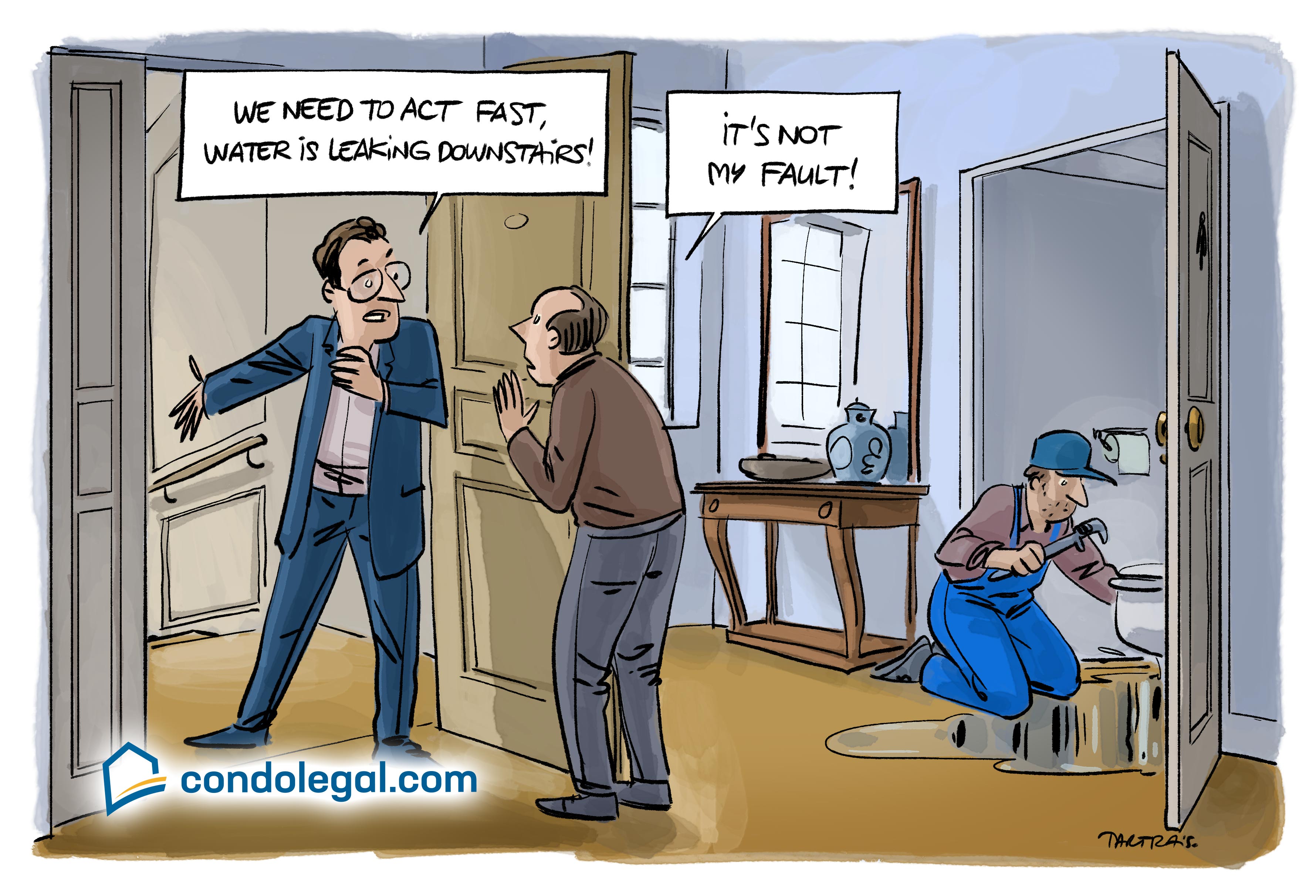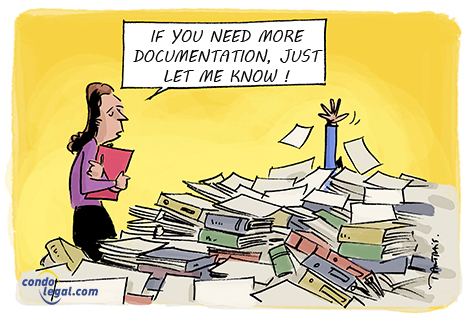Date published: 21/02/2022
Time limits for keeping documents in the register

February 22, 2022 - The archives of a co-ownership are a set of documents kept being able to manage the building, prove rights or testify to certain activities. I am sometimes asked for how long documents filed in the co-ownership register should be kept by the syndicate. This is a fair question, since the legislator has given no explicit directions on this subject in the Civil Code.
It could be that its silence means, "You must keep everything, permanently !” As far as I am concerned, I rather lean in that direction.
A reminder
The Code provides in essence that the syndicate (i.e., the Board of Directors) must keep the list of its members, as well as "the books and records necessary for its proper functioning" and specifies that the co-owners must have access to them (section 342 Code civil of Quebec). For its part, section 1070 Code civil of Quebec lists various documents that must be kept or kept up to date by the syndicate (see my previous three publications on register’s record keeping).
For how long should they be safeguarded?
The legislator did not indicate a minimum retention period. It should be remembered, however, that the preservation of the registers implies first and foremost acting as a “responsible” person. One must also keep in mind that these registers belong to the syndicate, a legal person entirely distinct from its members, having its own powers and duties. The directors of the co-ownership can therefore not act in the same manner as for their personal documents. In my opinion, it is wise to be very careful before destroying any document from the registers of co-ownership. These registers contain:
- On the one hand, the official documents of the syndicate (its "birth certificate": cadastral plan, initial declaration of co-ownership (and all subsequent amendments, including the By-Laws), plans and specifications of the building as built. These documents must absolutely be kept forever .One absolutely cannot get rid of them.
- On the other hand, the history or the "experience" of the syndicate (registers of co-owners and tenants, financial statements, minutes and files of general meetings of co-owners and meetings of directors, state of repair of the immovable certificate, maintenance logbook, contingency fund study, expert’s reports, calls for tenders, bids, all contracts relating to the immovable, etc.).
Insofar as the documents in this second category, I think they should also be kept in perpetuity for the most part. Apart from the registers of co-owners and tenants, which must be kept up-to-date in a meticulous manner, it might be feasible to archive some documents, where possible (in paper or electronic form) or to store them, as the years go by and the filing cabinets overflow.
What is most important, in my opinion, is to preserve the possibility to consult these documents. One should therefore consider making a backup copy, by transferring them on an electronic media when possible. Records or CD’s must be stored in safe and secure locations; they must however remain accessible for consultation.
Let’s nevertheless be “practical". Are there documents of the second category that can be disposed of, after a few years, without risking harming the syndicate? I would say yes, on a very limited basis.
Hereunder is, in my opinion, what every well run syndicate should minimally do, in terms of retention of documents kept in the register:
- To be kept for at least 1 year or for the term of the contract: Snow removal or landscaping contracts, guarantee contracts (unless a dispute is apprehended, in which case they should be kept for at least 3 years); Bell or Vidéotron invoices; invoices from regular suppliers.
- To be kept for at least 3 years: Payroll records and employee time sheets; terminated employment contracts; Hydro-Québec or Gaz Métropolitain invoices. The 3-year period corresponds to the statute of limitation period (prescription) for a personal action in the Civil Code.
- To be kept for at least 6 years: Cancelled cheques issued by the syndicate; bank statements; invoices for professional fees; insurance policies no longer in force.
- To be kept for kept for at least 7 years: Any documents related to taxes and income tax, if applicable. Save for a syndicate that owns the janitor’s apartment, there is in principle no liability for payment of real estate taxes. Nevertheless, the income tax acts stipulate that tax returns must be filed by a syndicate of co-ownership.
- To be safeguarded permanently: Any documents relating to the constitution or legal existence of the syndicate; the registers of co-owners and tenants; minutes of the general meetings of co-owners and meetings of directors; plans and specifications and contracts for all major works carried out upon the immovable; the state of repair of the immovable certificate; the maintenance logbook, the contingency fund study; etc.
As directors, you do not have the right to destroy or dispose of documents that are still valid or could be useful, thereby putting at risk or affecting negatively the syndicate’s operation or rights. In doubt, one preserves, one does not destroy. Instead, focus on archiving or storage in a dry location unlikely to be flooded (avoiding the basement or garage floor), away from a source of heat. Consider archiving on electronic media in a safe location, away from magnetic fields or extreme temperatures.
Incidentally, when decisions are made to destroy documents from the co-ownership register (invoices, checks and bank statements, etc.), they are to be shredded before recycling. One does not put them directly in the garbage or recycling bin, to avoid any possible identity theft.
Richard LeCouffe, Lawyer
The chronicles express the personal opinions of their authors and do not in any manner expose the publisher of the site, CondoLegal.com Inc., to liability. The content and the opinions expressed in a chronicle are the sole responsibility of its author.
Back to chronicles


